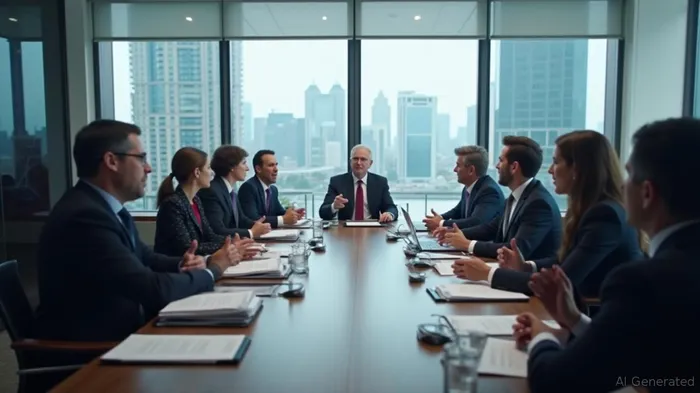Solana Coalition Seeks SEC Approval for Blockchain Financial Rules
RWA, or Real-World Asset, is identified as the sector with the most potential in the cryptocurrency market. Larry Fink, the CEO of BlackRockREM--, has publicly endorsed this sector, with predictions suggesting a $30 trillion RWARW-- market by 2030. This represents a substantial increase from the current market share, which is either $4 billion or $37.4 billion, depending on the source.
The Solana Coalition, comprising the Solana Policy Institute, Superstate Funds, Orca, and Phantom, has submitted detailed legal frameworks to the U.S. Securities and Exchange Commission (SEC) as part of Project Open. Launched in April 2025, this initiative aims to modernize outdated financial rules for blockchain-based systems. The coalition emphasizes that decentralized blockchain networks, such as Solana, differ significantly from traditional intermediaries like banks or brokerages. Validators on Solana do not hold customer assets, and platforms like Orca automatically match trades without acting as a middleman, making these systems non-custodial and autonomous.
The current U.S. securities laws, which predate the existence of blockchain technology, could incorrectly classify blockchain protocols as exchanges or clearing agencies. This misclassification could create unnecessary regulatory hurdles and stifle innovation. If accepted, the proposals from the Solana Coalition could enable traditional financial assets, such as stocks and bonds, to be traded around the clock on secure, transparent, blockchain networks. This would result in instant settlement, fewer fees, and increased access for investors.
The market for tokenized assets is rapidly expanding. A 2024 report indicates that asset tokenization could unlock up to $16 trillion in value by 2030. Major institutions like BlackRock have already demonstrated strong demand by launching tokenized funds on Ethereum. The Solana Coalition's Project Open framework positions the U.S. to lead in this space by combining innovation with responsible oversight. The proposal urges the SEC to recognize the unique structure and potential of blockchain technology rather than forcing it into outdated categories.
The Solana Coalition's efforts are part of a broader trend in the cryptocurrency world, where investors are increasingly seeking underrated altcoins with significant breakout potential. EstateX, for example, is a next-generation RWA protocol with an upcoming L1 blockchain designed to lead the future of property tokenization. Other notable cryptocurrencies include ZETA (ZetaChain), which allows developers to build omnichain applications, and various layer 1 and RWA tokens such as $QNT, $KAS, $SUI, $INJ, $TIA, $SEI, $BKN, $PROPC, $YBR, and $WELF. These cryptocurrencies are seen as having incredible upside potential, particularly in the context of the ongoing altseason.
The submission by the Solana Coalition to the SEC is a significant step towards modernizing financial regulations for blockchain-based systems. By clearly articulating how blockchain infrastructure differs from traditional intermediaries, the coalition provides the SEC with a concrete path to enabling innovation while maintaining investor protection. This could have far-reaching implications for the future of finance, allowing traditional financial assets to be traded on secure, transparent, blockchain networks. The market for tokenized assets is already booming, and the Solana Coalition's efforts could position the U.S. to lead in this space by combining innovation with responsible oversight.

Quickly understand the history and background of various well-known coins
Latest Articles
Stay ahead of the market.
Get curated U.S. market news, insights and key dates delivered to your inbox.

Comments
No comments yet